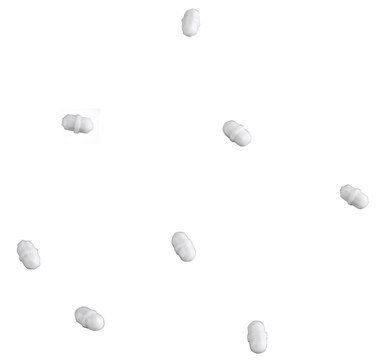793175
Reagent Alcohol
ACS reagent
Synonym(s):
Laboratory Grade Ethanol
About This Item
Recommended Products
grade
ACS reagent
Quality Level
vapor density
1.59 (vs air)
form
liquid
expl. lim.
3.1-27.7 % (lit.)
concentration
100%
94-96 % (v/v) (methanol SDA 3A 200 proof)
impurities
≤0.2% water
water
bp
78 °C (lit.)
mp
-114 °C (lit.)
Tax and license information
Sales restrictions may apply
Looking for similar products? Visit Product Comparison Guide
Related Categories
General description
Application
Packaging
12x1GA-PB is 3x(4x1GA) in poly bottle.
20x1GA-PB is 5x(4x1GA) in poly bottle.
5GA is in metal drum with flex spout.
5GA-PB is in a poly drum with flex spout.
3x5GA is in metal drum with flex spout.
3x5GA-PB is in a poly drum with flex spout.
55GA is in metal drum.
55GA-PB is in poly drum.
270GA is in poly tote.
Components
Other Notes
The letterhead approval is only required by Sigma-Aldrich when the unit size is 5GA or greater.
Link to Letterhead Example:
replacement part
Signal Word
Danger
Hazard Statements
Precautionary Statements
Hazard Classifications
Eye Irrit. 2 - Flam. Liq. 2 - STOT SE 2
Target Organs
Eyes,Central nervous system
Storage Class Code
3 - Flammable liquids
WGK
WGK 2
Flash Point(F)
57.2 °F - closed cup
Flash Point(C)
14 °C - closed cup
Regulatory Listings
Regulatory Listings are mainly provided for chemical products. Only limited information can be provided here for non-chemical products. No entry means none of the components are listed. It is the user’s obligation to ensure the safe and legal use of the product.
FSL
Group 4: Flammable liquids
Alcohols
Hazardous rank II
ISHL Indicated Name
Substances Subject to be Indicated Names
ISHL Notified Names
Substances Subject to be Notified Names
JAN Code
793175-3X5GA:
793175-VAR:
793175-20X1GA-PB:
793175-12X1GA-PB:
793175-55GA:
793175-BULK:
793175-5GA:
793175-5GA-PB:
793175-270GA:
793175-55GA-PB:
793175-4X1GA-PB:
793175-3X5GA-PB:
Choose from one of the most recent versions:
Certificates of Analysis (COA)
Don't see the Right Version?
If you require a particular version, you can look up a specific certificate by the Lot or Batch number.
Already Own This Product?
Find documentation for the products that you have recently purchased in the Document Library.
Our team of scientists has experience in all areas of research including Life Science, Material Science, Chemical Synthesis, Chromatography, Analytical and many others.
Contact Technical Service










